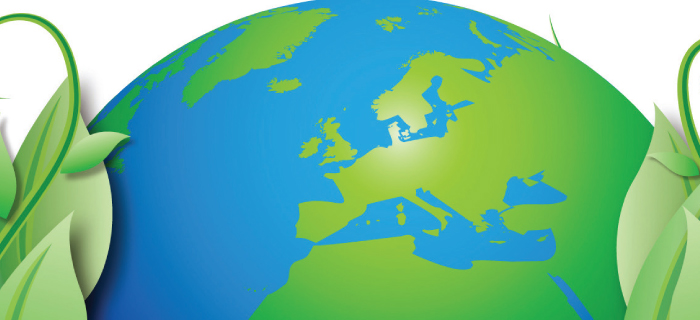El 30 de este mes comienza en París la COP21, un evento mundial que debería llegar a acuerdos para reducir la emisión de gases causantes del cambio climático
 El 30 de este mes comienza en París la COP21, un evento mundial que debería llegar a acuerdos para reducir la emisión de gases causantes del cambio climático. ¡Nos concierne! Los humanos de hoy tenemos un compromiso con nuestro planeta y la vida que lo puebla, en riesgo por nuestra propia acción: debemos lograr un cambio de rumbo que nos oriente a un futuro de fecundidad y armonía, pues si seguimos como vamos nos espera un futuro de esterilidad y desequilibrio. La responsabilidad de esta dramática situación no es, de ninguna manera, de todas y todos por igual, pero las soluciones sí necesitan ser promovidas por las mayorías. Son ellas quienes pueden asegurar un mañana.
El 30 de este mes comienza en París la COP21, un evento mundial que debería llegar a acuerdos para reducir la emisión de gases causantes del cambio climático. ¡Nos concierne! Los humanos de hoy tenemos un compromiso con nuestro planeta y la vida que lo puebla, en riesgo por nuestra propia acción: debemos lograr un cambio de rumbo que nos oriente a un futuro de fecundidad y armonía, pues si seguimos como vamos nos espera un futuro de esterilidad y desequilibrio. La responsabilidad de esta dramática situación no es, de ninguna manera, de todas y todos por igual, pero las soluciones sí necesitan ser promovidas por las mayorías. Son ellas quienes pueden asegurar un mañana.  Es notable que entre las diversas formas vivientes, todas maravillosas en su complejidad y variedad e incluso algunas provistas de sensibilidad e inteligencia, haya en la actualidad solo una, nuestra especie, dotada de particulares capacidades de raciocinio, emotividad y creación. Llevamos doscientos mil años siendo una presencia consciente en el mundo. Lo hemos observado y hemos tratado de explicar sus fenómenos, nos hemos conmovido o asustado ante sus manifestaciones, y hemos generado soluciones técnicas para mejorar nuestra existencia en él.
Es notable que entre las diversas formas vivientes, todas maravillosas en su complejidad y variedad e incluso algunas provistas de sensibilidad e inteligencia, haya en la actualidad solo una, nuestra especie, dotada de particulares capacidades de raciocinio, emotividad y creación. Llevamos doscientos mil años siendo una presencia consciente en el mundo. Lo hemos observado y hemos tratado de explicar sus fenómenos, nos hemos conmovido o asustado ante sus manifestaciones, y hemos generado soluciones técnicas para mejorar nuestra existencia en él.
Sin embargo, desde principios del siglo XIX los procesos se han disparado, nuestra tecnología se ha hecho crecientemente más poderosa, se ha incrementado nuestro número y se ha impuesto entre nosotros un sistema económico de extraña lógica, el capitalismo, en el cual el fin de la actividad económica no es producir bienes y servicios como tales sino multiplicar el capital. El capital debe siempre crecer, de lo contrario todo el tinglado económico se derrumba. Así, la publicidad nos insta a botar lo viejo aunque sirva y a estar a la moda comprando lo nuevo, los objetos están hechos para que no duren mucho, y el crédito amplía el consumo. Ingentes cantidades de mercancías (desde cholas hasta autos de lujo) se transportan a miles de kilómetros de sus lugares de origen para ser vendidas. Todo esto implica extraer cada día más minerales, talar más bosques, quemar más combustibles generando gases invernadero… Necesitamos otro modo de vivir: cómodo pero sencillo, centrado en la producción local y en la cooperación.
AURORA LACUEVA
lacuevat@hotmail.com




